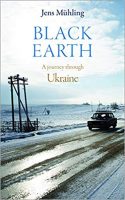 Whatever it throws at us politically, autumn promises to be a good season for travel writing.
Whatever it throws at us politically, autumn promises to be a good season for travel writing.
The German journalist Jens Mühling, who was shortlisted in 2015 for the Stanford Dolman Travel Book of the Year award for A Journey into Russia, has followed that with Black Earth: A Journey through Ukraine, published last week in Britain by Haus Publishing. It’s a story of a country “at the crossroads of Europe and Asia and the centre of countless conflicts of opinion”.
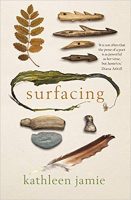 Next month the poet Kathleen Jamie is due to publish a new collection of essays, Surfacing (Sort Of Books, September 17). It’s a book in which she “visits archaeological sites – a Yup’ik village at the edge of the Bering Sea, the shifting sand dunes of Westray – and mines her own memories and family history to explore what surfaces and what connects us to our past and future”. Jamie has written three acclaimed books on nature and place, including Sightlines , which was joint winner of the Dolman prize in 2013. (She will be talking about her new book to Philip Hoare, author of Leviathan and RisingTideFallingStar, at the London Review Bookshop on September 27.)
Next month the poet Kathleen Jamie is due to publish a new collection of essays, Surfacing (Sort Of Books, September 17). It’s a book in which she “visits archaeological sites – a Yup’ik village at the edge of the Bering Sea, the shifting sand dunes of Westray – and mines her own memories and family history to explore what surfaces and what connects us to our past and future”. Jamie has written three acclaimed books on nature and place, including Sightlines , which was joint winner of the Dolman prize in 2013. (She will be talking about her new book to Philip Hoare, author of Leviathan and RisingTideFallingStar, at the London Review Bookshop on September 27.)
 Also next month, Pico Iyer is due to publish A Beginner’s Guide to Japan: Observations and Provocations (Bloomsbury, September 5). It’s the second book this year by the Global Soul on his adopted home: in May he published Autumn Light.
Also next month, Pico Iyer is due to publish A Beginner’s Guide to Japan: Observations and Provocations (Bloomsbury, September 5). It’s the second book this year by the Global Soul on his adopted home: in May he published Autumn Light.
In his new primer he “draws on readings, reflections and conversations with Japanese friends to illuminate an unknown place for newcomers and to give long-time residents a look at their home through fresh eyes”.
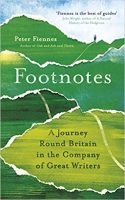 In Footnotes (Oneworld, September 5), Peter Fiennes — whose Oak and Ash and Thorn was a Guardian Best Nature Book of the Year — sets out to travel round Britain in the footsteps of a dozen writers, starting with Enid Blyton in Dorset and ending with Charles Dickens on the train that took him to his last resting place in Westminster Abbey. Along the way, he joins Somerville and Ross on their ascent of Snowdon, and retraces journeys in England made by JB Priestley in the 1930s and Beryl Bainbridge in the 1980s.
In Footnotes (Oneworld, September 5), Peter Fiennes — whose Oak and Ash and Thorn was a Guardian Best Nature Book of the Year — sets out to travel round Britain in the footsteps of a dozen writers, starting with Enid Blyton in Dorset and ending with Charles Dickens on the train that took him to his last resting place in Westminster Abbey. Along the way, he joins Somerville and Ross on their ascent of Snowdon, and retraces journeys in England made by JB Priestley in the 1930s and Beryl Bainbridge in the 1980s.
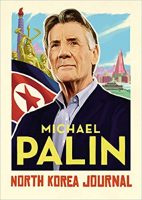 On September 19, one of television’s best-known globetrotters, Michael Palin, publishes North Korea Journal (Cornerstone/Penguin), the diary he kept while making a documentary in the “Democratic People’s Republic” for Channel 5 over two weeks in 2018. It was the 98th country he’s visited, and he celebrated his 75th birthday while he was there. His philosophy of travel, he says in the introduction, is that “the more difficult somewhere is to get to, the greater the prize to be won by getting there. But when the prize was North Korea, I found that this was not a view shared by my wife, and a surprising number of my friends. To many of them, this was a step too far…”
On September 19, one of television’s best-known globetrotters, Michael Palin, publishes North Korea Journal (Cornerstone/Penguin), the diary he kept while making a documentary in the “Democratic People’s Republic” for Channel 5 over two weeks in 2018. It was the 98th country he’s visited, and he celebrated his 75th birthday while he was there. His philosophy of travel, he says in the introduction, is that “the more difficult somewhere is to get to, the greater the prize to be won by getting there. But when the prize was North Korea, I found that this was not a view shared by my wife, and a surprising number of my friends. To many of them, this was a step too far…”
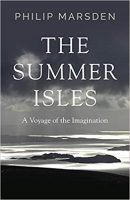 On October 3, Granta is due to publish The Summer Isles: A Voyage of the Imagination by Philip Marsden, author of several much-praised works of travel writing and other non-fiction. In his last book, Rising Ground, Marsden told how his move to a remote farmhouse in Cornwall prompted a journey through the myth-laden South-West. In the new book, he sets sail from there in an old wooden sloop for the Summer Isles, “a small archipelago near the top of Scotland that holds for him a deep and personal significance”. The book is “an account of the search for actual places, invented places, and those places in between that shape the lives of individuals and entire nations”.
On October 3, Granta is due to publish The Summer Isles: A Voyage of the Imagination by Philip Marsden, author of several much-praised works of travel writing and other non-fiction. In his last book, Rising Ground, Marsden told how his move to a remote farmhouse in Cornwall prompted a journey through the myth-laden South-West. In the new book, he sets sail from there in an old wooden sloop for the Summer Isles, “a small archipelago near the top of Scotland that holds for him a deep and personal significance”. The book is “an account of the search for actual places, invented places, and those places in between that shape the lives of individuals and entire nations”.
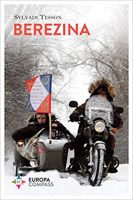 In November, the Frenchman Sylvain Tesson, who in 2014 won what was then the Dolman Travel Book Award for Consolations of the Forest, his account of a six-month stay in a log cabin in Siberia, follows it up with Berezina (Europa Compass, September 7), the story of his motorcycle journey with three friends from Moscow to Paris, retracing the retreat of Napoleon in 1812. The Berezina is a river in Belarus, the scene of a battle during that retreat. In colloquial French, a bérézina refers to a disastrous situation.
In November, the Frenchman Sylvain Tesson, who in 2014 won what was then the Dolman Travel Book Award for Consolations of the Forest, his account of a six-month stay in a log cabin in Siberia, follows it up with Berezina (Europa Compass, September 7), the story of his motorcycle journey with three friends from Moscow to Paris, retracing the retreat of Napoleon in 1812. The Berezina is a river in Belarus, the scene of a battle during that retreat. In colloquial French, a bérézina refers to a disastrous situation.

Leave a Reply